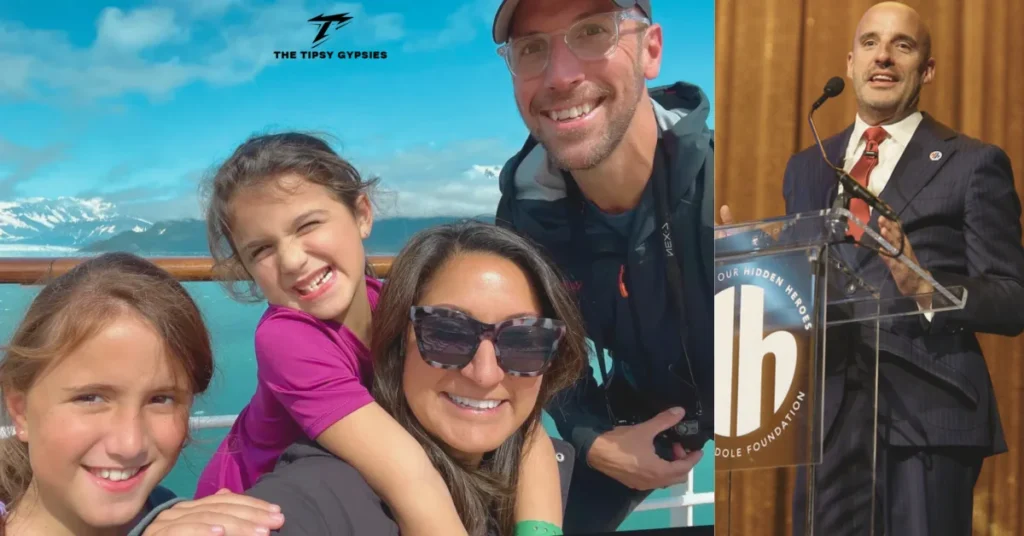Introduction to Paul Werdel
Paul Werdel is a name that resonates with many in the world of journalism. As the media landscape continues to evolve, his contributions stand out as a bridge between traditional practices and the digital innovations reshaping how we consume news. With a keen understanding of both realms, Werdel has carved out a unique niche for himself—one that emphasizes integrity and truth amidst rapid change. Whether you’re an aspiring journalist or simply curious about the future of media, exploring Paul Werdel’s journey offers valuable insights into navigating this dynamic industry. Let’s dive deeper into his influence on journalism today.
Discover insights tailored for you—dive into our related posts and stay ahead today!
Traditional Journalism in the Digital Age
Traditional journalism faces a unique set of challenges in today’s digital landscape. The shift from print to online has transformed how news is consumed and reported. Readers now expect instant updates, often favoring speed over depth.
Gone are the days when newspapers dictated the news cycle. Social media platforms have become vital sources of information, reshaping audience engagement. Journalists are adapting by blending traditional storytelling with multimedia elements like videos and podcasts.
Yet, this rapid evolution raises questions about credibility and fact-checking. In an age where misinformation spreads quickly, maintaining journalistic standards feels more critical than ever.
As reporters navigate this new terrain, they must embrace technology while holding onto core principles of accuracy and fairness. The challenge lies in balancing innovation with ethical responsibility—an ongoing journey for many in the industry today.
The Rise of Digital Innovation in Journalism
The landscape of journalism has transformed dramatically with digital innovation. The rise of the internet brought new platforms that allow news stories to spread faster than ever before.
Social media, blogs, and podcasts have become vital tools for journalists. They not only reach broader audiences but also engage readers in real-time conversations. This shift has democratized information dissemination, giving a voice to both seasoned professionals and aspiring writers.
Moreover, technology enhances storytelling through multimedia elements like videos and interactive graphics. These features captivate audiences and provide deeper insights into complex issues.
However, this rapid evolution poses challenges as well. The pressure to produce content quickly can sometimes overshadow accuracy or thorough reporting. Finding a balance between speed and integrity remains crucial for journalists navigating this brave new world of digital innovation in journalism.
Unlock a world of knowledge—explore more articles that fuel your curiosity and growth.
Paul Werdel’s Impact on the Field of Journalism
Paul Werdel has made significant contributions to the field of journalism, particularly in how stories are told and shared. His approach blends traditional values with modern techniques, creating a dynamic narrative style that resonates with diverse audiences.
Werdel emphasizes storytelling’s core purpose: connection. By leveraging digital tools, he engages readers in ways that were once thought impossible. This fusion brings new life to age-old principles of reporting.
He inspires emerging journalists to embrace technology while remaining grounded in ethical practices. Werdel’s workshops encourage critical thinking and creativity among aspiring reporters.
His influence extends beyond individual stories; it shapes newsroom culture as well. Colleagues look to his leadership for guidance on navigating the complexities of today’s media landscape.
In an era where trust is paramount, Paul Werdel serves as a beacon for integrity within journalism’s evolving framework.
Maintaining Integrity in a Changing Industry
Integrity in journalism is more crucial than ever, especially as the industry evolves. In an age where misinformation spreads rapidly, maintaining trust with the audience can be challenging.
Paul Werdel emphasizes that journalists must adhere to core ethical principles. Fact-checking and transparency are non-negotiable elements of credible reporting. This commitment fosters confidence among readers who rely on accurate information.
Moreover, as digital platforms rise, there’s a temptation to prioritize sensationalism over substance. Werdel advocates for a balance between engaging storytelling and factual accuracy.
The challenge lies not just in content creation but also in understanding platform algorithms without compromising journalistic values. Adapting to new technologies should enhance integrity rather than undermine it.
Embracing change while holding steadfastly to ethical standards ensures that journalism remains a beacon of truth amidst chaos. It’s about serving the public good first and foremost—an enduring principle in this fast-paced landscape.
Future Predictions for Journalism and Digital Innovation
The future of journalism is poised for dramatic shifts. With the rapid advancement of technology, we can expect tools like artificial intelligence to play a pivotal role in news gathering and storytelling.
Journalists will likely collaborate with AI to analyze vast data sets swiftly. This could lead to more insightful reporting while allowing human writers to focus on narrative depth.
Additionally, immersive technologies such as augmented and virtual reality may redefine how audiences consume news. Imagine stepping into a live report or experiencing events as if you were there.
Social media platforms will continue evolving, presenting both challenges and opportunities for engagement. Journalists must adapt their strategies to navigate misinformation while fostering community trust.
Sustainability in journalism will also gain traction, as ethical practices become essential amidst growing concerns about content authenticity. The integration of digital innovation will be crucial for maintaining relevance in this dynamic landscape.
Conclusion
Paul Werdel stands out as a beacon in the dynamic landscape of journalism. His ability to navigate the waters between traditional practices and cutting-edge digital strategies has made him an influential figure.
As we look ahead, it’s clear that blending integrity with innovation is essential for the future of news. The industry faces challenges, but through visionaries like Werdel, there’s hope for a more trustworthy and engaging media environment.
The fusion of ethics and technology will be vital moving forward. With leaders like Paul Werdel at the forefront, journalism can adapt while maintaining its core values. This balance will shape how stories are told and received in an ever-evolving world, ensuring that truth prevails amidst change.
Don’t miss out! Check our featured post packed with expert tips and fresh ideas now.






